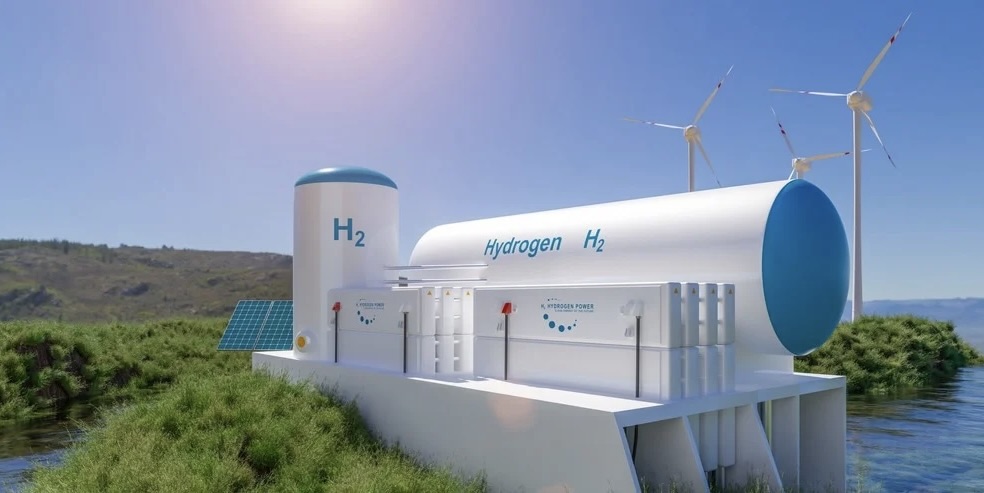Introducing hydrogen into a diesel engine is feasible and beneficial since it decreases diesel consumption, carbon emissions, and maintenance expenses while increasing the engine’s life.
 Image Credit: Alexander Kirch/Shutterstock.com
Image Credit: Alexander Kirch/Shutterstock.com
The need to reduce carbon emissions, a topic of great interest at the 21st Session of the Conference of the Parties at the 2015 Paris Climate Conference, and the gradual depletion of the global oil reserves emphasize the significance of using alternative fuels in diesel engines.
Electric cars will undoubtedly replace petrol and diesel cars, and hydrogen and next-generation batteries will play a vital role in this transition. Many countries plan to ban the sale of vehicles with internal combustion engines in the next decade.
This is undoubtedly a step in the right direction; however, the complete transition of heavy vehicles to zero emissions could take years, perhaps even decades. Therefore, researchers are looking at various options to fill this transition period.
Partial Fuel Replacement to Reduce Emissions
The process of replacing traditional fuels with renewable fuels started decades ago, but it has recently emerged as a pressing concern due to the growing need to reduce carbon emissions and conserve fossil fuels.
As a result of these factors, scientists are motivated to find and implement alternatives to fossil fuels in diesel engines.
Hydrogen has qualities that make it the cleanest fuel and can be produced in enormous quantities. Many scientists believe it will be the fuel of choice for automobiles in the future.
Challenges of Hydrogen Transport
The major drawback of this technology is its dependence on hydrogen, which calls for a hydrogen delivery network, a pressurized tank, and an additional cost for every kilometer traveled.
This is why manufacturers have limited this technology to diesel engines or heavy commercial vehicles to reduce carbon footprint.
Efforts to Make Diesel Engine Environment Friendly with Hydrogen
HYDI Hydrogen’s built-in hydrogen generator
HYDI Hydrogen, an Australian company, has proposed a novel design that does not need any hydrogen storage. Instead, their design relies on a device that combines distilled water and the electric energy generated by the vehicle’s electrical system to make a small volume of hydrogen, which is then pumped into the diesel engine’s combustion chamber.
The exciting aspect of this approach is that it deals with the high cost and limited hydrogen supply. HYDI Hydrogen guarantees a 14% reduction in energy usage and a 70% reduction in carbon emissions. However, this technology is not available for passenger vehicles.
UNSW’s retrofitted hydrogen-powered diesel engine
Researchers from the University of New South Wales have upgraded diesel engines, allowing them to work on a mixture of diesel fuel and hydrogen.
The transition to green energy would make millions of old engines useless, while new hydrogen fuel systems and engines would take time for mass production and widespread adoption. Therefore, Australian engineers proposed hydrogen-diesel engines to fill this transitional period.
The retrofit system retains the diesel fuel injection system but adds hydrogen injection directly into the cylinder and independent injection timing control for both hydrogen and diesel systems. In addition, it does not require pure hydrogen.
The team demonstrated that its layered hydrogen injection method, which creates pockets of higher and lower concentrations of hydrogen in the cylinder, reduces nitrous oxide and carbon emissions.
Overall, carbon dioxide emissions were reduced by approximately 85%, and the efficiency of a diesel engine was increased by 26%, representing a solid intermediate step towards complete decarburization of industries and heavy vehicles using diesel engines.
The research team plans to implement it in industrial facilities, such as mining enterprises, where hydrogen pipelines already exist. In the future, researchers will try to make this technology more mobile with a portable hydrogen storage system.
Future of Hydrogen-Diesel Vehicles
Due to stricter emission regulations and rising public concern over the environmental impacts of internal combustion automobiles, many promising hydrogen-assisted technologies have emerged in recent years to reduce carbon emissions and extend the life of diesel engines.
However, their success depends on the accessibility to hydrogen, which is not yet available in most areas. But the time for hydrogen as a key environmentally friendly alternative to lithium batteries may come.
Just as government regulations accelerate the transition to carbon-free vehicles, a lithium shortage looks to rock the electric vehicle battery market in the next few years.
Green hydrogen projects are springing up all over the world. As the green hydrogen industry gains momentum, it will be necessary for investors to know that there is robust and growing demand from vehicles that already use hydrogen and are looking for a cleaner solution.
